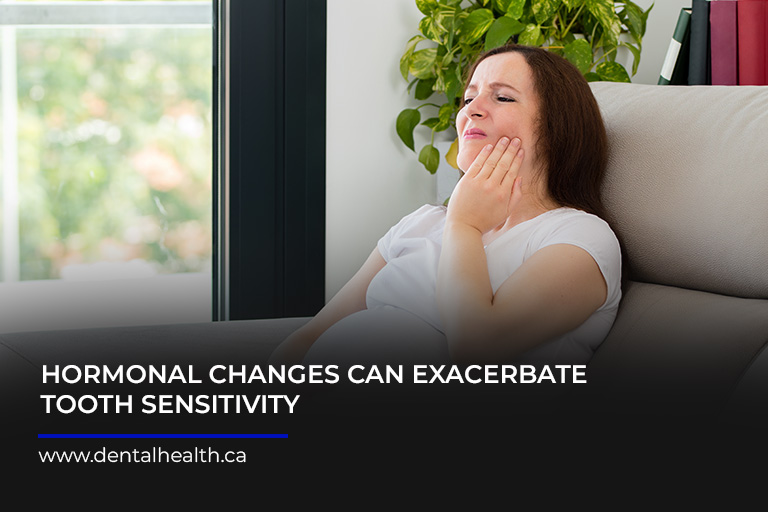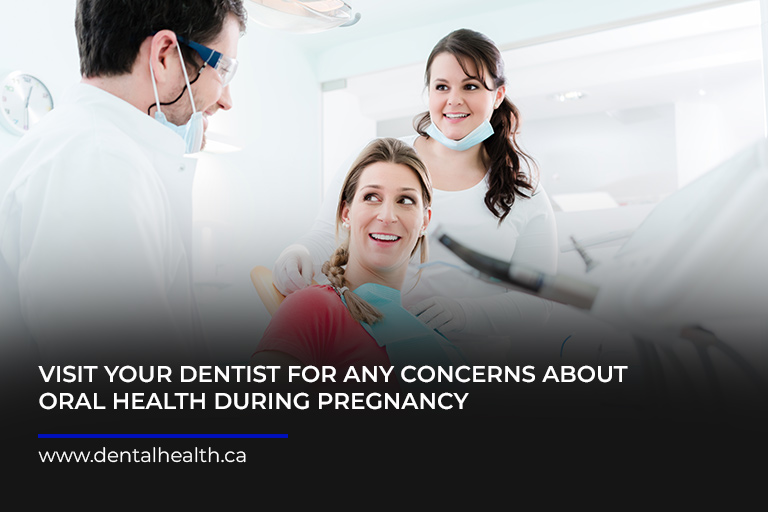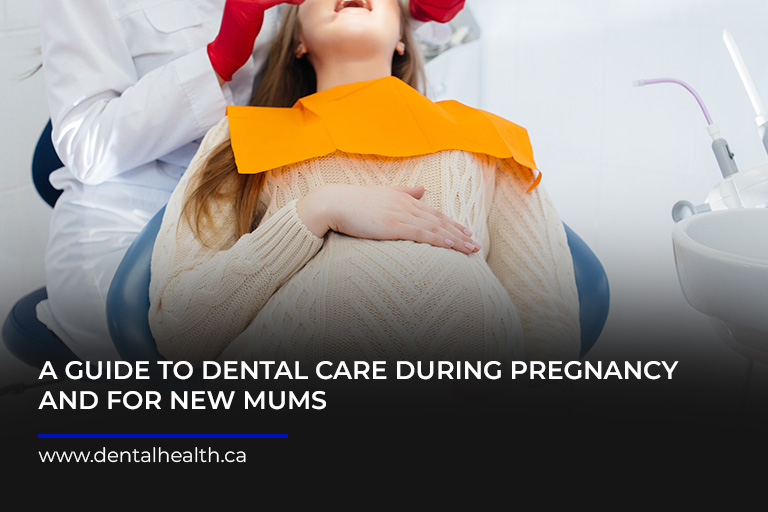Maintaining good oral health is crucial for everyone, but it becomes even more important during pregnancy and the postpartum period. Hormonal changes can affect oral health and neglecting it can impact both the mother’s and baby’s well-being. Many women have questions or concerns about dental care during this time, but rest assured that with proper guidance and care, you can maintain a healthy smile throughout your pregnancy journey.
Common concerns include the safety of dental procedures during pregnancy, the potential impact of oral health on the baby, and how to manage pregnancy-related oral health issues. We will address these concerns and provide evidence-based information to help you make informed decisions about your dental care. According to the Canadian Dental Association, regular dental care is not only safe but also recommended during pregnancy.
Why Oral Health is Important During Pregnancy
- Hormonal Changes: Pregnancy hormones can increase the risk of gum disease (gingivitis), which can lead to more serious conditions if left untreated. This is due to increased blood flow to gum tissues, making them more sensitive and prone to inflammation.
- Increased Risk of Cavities: Morning sickness and cravings for sugary foods can increase the risk of tooth decay. Frequent vomiting exposes teeth to stomach acid, while sugary snacks provide a breeding ground for cavity-causing bacteria.
- Link to Preterm Birth: Research suggests a potential link between gum disease and preterm birth or low birth weight. While more research is needed to establish a definitive cause-and-effect relationship, maintaining good oral hygiene is a prudent step for pregnant women.
- Impact on Baby’s Health: Oral bacteria can be transmitted to the baby, potentially affecting their oral health in the future. Early childhood caries (tooth decay in infants and toddlers) can be a result of bacterial transmission from the mother.
- Overall Well-being: Maintaining good oral health contributes to a mother’s overall health and well-being during pregnancy. A healthy mouth can boost self-esteem, improve quality of life, and reduce the risk of other health complications.
Common Oral Health Issues During Pregnancy

- Pregnancy Gingivitis: This is a common condition characterized by red, swollen, and bleeding gums due to increased hormone levels and plaque buildup. Practicing good oral hygiene and visiting your dentist regularly can help manage this condition.
- Pregnancy Tumours: These are non-cancerous growths that can form on the gums during pregnancy and usually disappear after childbirth. Although typically harmless, they can be bothersome if they become large or bleed, and it’s wise to consult your dentist for evaluation and treatment options.
- Tooth Erosion: Morning sickness can expose teeth to stomach acid, leading to erosion and weakening of enamel, making teeth more prone to decay. Rinsing your mouth with water after vomiting and maintaining good oral hygiene can help minimize the risk.
- Dry Mouth: Pregnancy hormones can decrease saliva production, leading to dry mouth and an increased risk of cavities. Drinking plenty of water, chewing sugar-free gum, and using oral rinses can help alleviate this condition.
- Increased Sensitivity: Hormonal changes or gum recession during pregnancy can cause tooth sensitivity, particularly to hot or cold temperatures. Using desensitizing toothpaste and adjusting your brushing technique may provide relief.
- Loose Teeth: Pregnancy hormones can temporarily loosen teeth, but this usually resolves after childbirth. Unless accompanied by pain or bleeding, loose teeth during pregnancy are generally not a cause for concern.
- Bad Breath: Hormonal fluctuations, combined with poor oral hygiene or certain foods, can contribute to bad breath (halitosis). Maintaining good oral hygiene, staying hydrated, and avoiding certain foods can help manage this issue.
- Increased Risk of Gum Disease: Pregnancy hormones can worsen existing gum disease, making it crucial for women with pre-existing periodontal disease to prioritize oral hygiene and seek regular dental care to prevent complications.
Safe Dental Care for New Mums
- Regular Dental Check-ups: Maintain regular dental check-ups and cleanings throughout pregnancy. These appointments allow your dentist to monitor your oral health and address any issues promptly. The Canadian Dental Association recommends dental check-ups every six months, but your dentist may suggest more frequent visits if you have specific concerns.
- Inform Your Dentist: Inform your dentist about your pregnancy so they can tailor your care accordingly. They may avoid certain medications or procedures during specific trimesters.
- Safe Dental Procedures: Most dental procedures, including X-rays (with proper shielding), fillings, and cleanings, are safe during pregnancy. X-rays use very low levels of radiation, and dentists take extra precautions to protect the developing fetus.
- Good Oral Hygiene: Brush twice a day with fluoride toothpaste, floss the gaps between your teeth daily, and consider using an antimicrobial mouthwash. These practices help remove plaque and bacteria, reducing the risk of cavities and gum disease.
- Healthy Diet: Maintain a balanced diet low in sugary foods and drinks. Choose fruits, vegetables, whole grains, and lean protein sources to nourish your body and protect your teeth.
- Manage Morning Sickness: Rinse your mouth with water or a baking soda solution after vomiting to neutralize acid. Avoid brushing immediately after vomiting, as this can further damage the enamel.
- Stay Hydrated: Drink plenty of water to prevent dry mouth. You can also chew sugar-free gum or suck on sugar-free candies to stimulate saliva production.
When to Seek Professional Help

- Severe Gum Bleeding: If you experience persistent or severe gum bleeding, consult your dentist. This could be a sign of pregnancy gingivitis or a more serious gum infection.
- Persistent Pain or Swelling: Seek professional help for any dental pain or swelling that doesn’t subside. This could indicate an infection or other dental problem that requires attention.
- Loose Teeth: If you notice loose teeth, consult your dentist for evaluation. This could be a temporary effect of pregnancy hormones or a sign of underlying periodontal disease.
- Concerns or Questions: Don’t hesitate to contact your dentist if you have any concerns or questions about your oral health during pregnancy. They are your best resource for personalized advice and guidance.
Prioritizing oral health during pregnancy and postpartum is essential for both mother and baby. By following these guidelines and seeking professional care when needed, you can ensure a healthy smile throughout this special time. Remember, a healthy mouth contributes to a healthy pregnancy and a happy new mum.
If you have any questions or would like to schedule a dental check-up, feel free to contact Kingsway Family Dentistry at (905) 563-4001. We are here to support your oral health journey during pregnancy and beyond.

